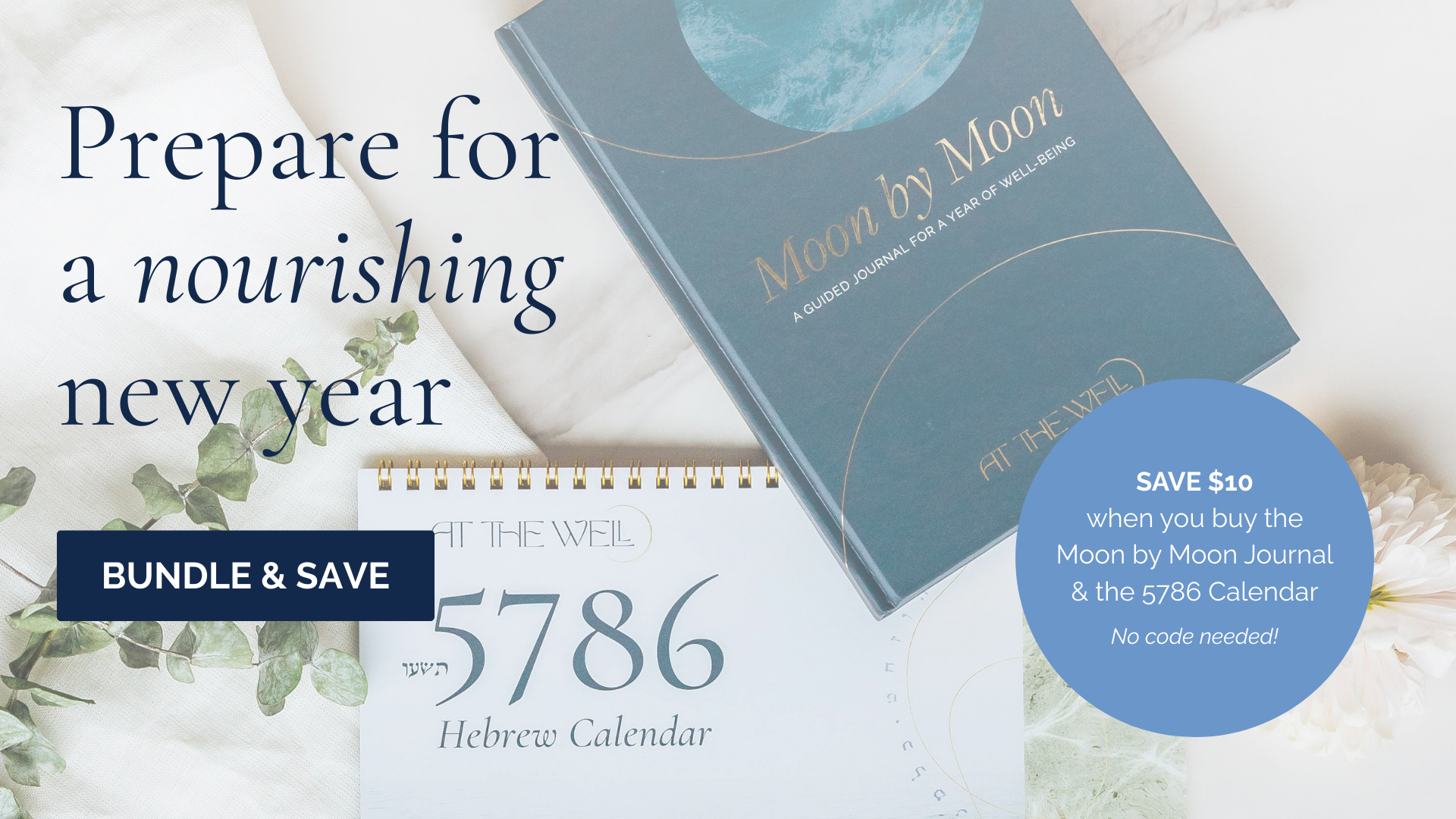A column of light stretches up from the base of my hips, through my belly and chest, and out the top of my head. My ancestors live there in that warm light. They are still. They are calm. They can see God within a stretch of time and within a body. They are the spine of my soul.
They are there when I do my work, when I lose my patience with my children, when I feel embarrassed or lonely or lost. They are with me when I am able to access my power, and they stroke my back when I forget who I am. I gently scrunch some product into my curls with their approval. My fingertips move into the surface of dough with their blessing.
For the past 5 years, I have managed to make challah every week. Throughout my marriage to a non-Jewish woman; through two pregnancies and breastfeeding; through divorce and pandemic and new jobs; through raising children with growing, changing needs; through writing and rediscovering and articulating who I am; I stand in the kitchen every Friday morning, ready to begin creating Shabbos.
I wake up before the kids toddle out of bed to start the dough. While I wait for the yeast to activate in a little puddle of sugar and warm water, I make coffee and start breakfast for the kids. It’s still dark outside.
As I prepare to add the rest of the ingredients, the baby, now two and a half, wanders into the kitchen. With his little footie-pajama-shuffle and squinty morning eyes, he pulls over the kitchen step stool and climbs up. “Help you, Ima.” I brush the wisps of hair from his eyes and forehead, and hand him a measuring cup.
As always, I have planned my week so that I will be able to come home in time to braid the dough and give it a second rise before glazing it with egg and tucking it into the oven. When it’s time to braid, I give shape to more than just the dough; I weave all my successes and failures from the week, and all my desires for connection and integration. As I fold one strand over the next, I sometimes sing.
A balabusta is the archetypal Jewish homemaker, commanding, mistress of her kitchen, and the woman who sets the tone of the home. She is the matriarch. But I have come to think of the word balabusta as a verb as well as a noun. To balabusta means not only to serve a family and a home, but also to build and grow community.
Day-to-day, I balabusta; I make sure my children know who they are and that they belong to a people; in my work as a home visitor, I guide others to connect to themselves through our interactions; I help families feed their babies as a lactation counselor, and I try like hell to bring ruach nachon, a sacred and steadfast spirit, to every part of my life, as much as my tired-human-single-mom-self can muster.
And when evening arrives, we sit at our little table arranged like an altar with our most precious holy items. At the Shabbos table with my two children, I feel alone. I feel the profound lack of community and of a larger family. I feel the deep effort it takes to hold myself together, to be the safe and regulated parent my children need. I feel empty and yearning and sad and also resolute: this is what we do in our family on Friday nights, no matter what. We sing together, we eat, we offer blessings to each other and to God, we have treats, and we create a special and fleeting moment together. Here. Now.
The children know the tunes to the songs and prayers and piyyutim (sacred Hebrew poems), even if they are still learning all the words. They sing along with me, and my body glows from seat to crown. I am not a martyr. I am a mess. Challah, for me, is survival. It keeps my spirit both buoyant and grounded. I need challah like I need my own voice.
When it comes time to make motzi, the blessing over the challah, my children extend their fingers and reach their palms toward each other. Together we hold hands and say: “Poteach et yadecha u’masbiya l’chol chai ratzon” (Psalms 145:16). You open up your hands and fulfill the desires of all living things. Saying these words brings the column of light and the ancestors within, into their full brightness. My great grandmother and all the others I have never met are there. I am seen and understood. My children glow. This is faith.
At The Well uplifts many approaches to Jewish practice. Our community draws on ancient Jewish wisdom, sometimes adapting longstanding practices to more deeply support the well-being of women and nonbinary people. See this article’s sources below. We believe Torah (sacred teachings) are always unfolding to help answer the needs of the present moment.
What Is a Balabusta?, Chabad.org
A Spirit of ‘Yes!’: V’Ruach nachon, Rabbi Shefa Gold
What Is Challah?, My Jewish Learning
Piyyutim: Religious Poetry, My Jewish Learning

